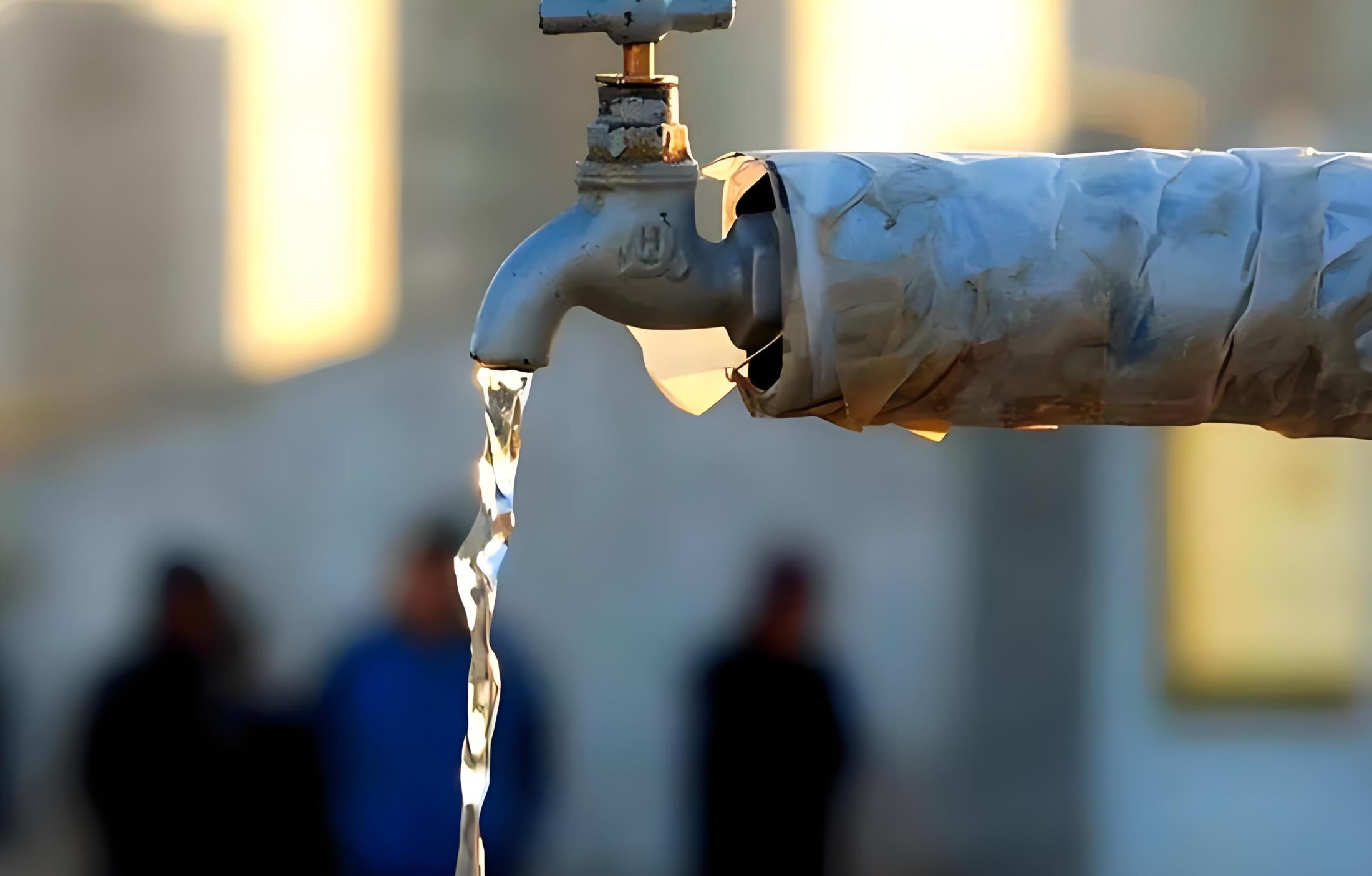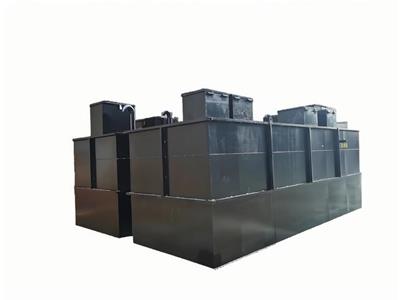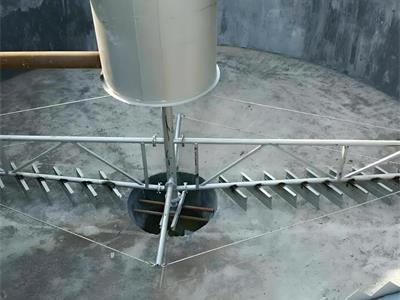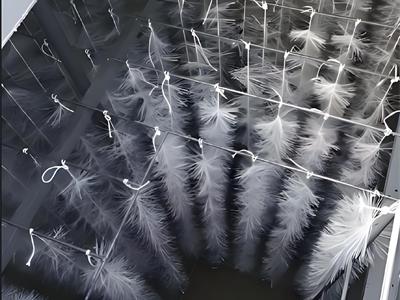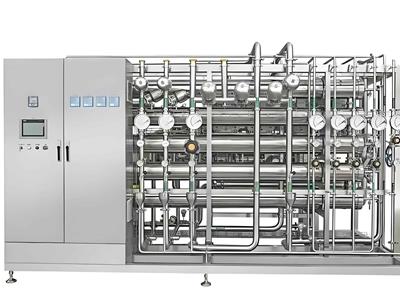- 2025-07-28
What is the difference between a salt-containing water softener and a salt-free water softener?
In order to obtain higher quality water, many people will consider using a water softener to improve the water quality. When choosing a water softener, you may encounter two types: salt-free water softeners and salt-containing water softeners. What is the difference between these two types of water softeners? What are the advantages and limitations of each? The following article can help you make the best choice.
Why use a water softener?
A water softener is an effective device used to soften hard water. The salts dissolved in hard water are mainly calcium and magnesium ions, and the concentration is relatively high. This not only brings many inconveniences to daily life, but also affects industrial production.
Using hard water reduces the effectiveness of soaps and other detergents, and leaves white residues on washed items. Cooking utensils may accumulate scale, and long-term use of hard water will make hair dry and skin rough. In addition, mineral deposits will accumulate in pipes, causing blockages, and will adhere to the surface of water heaters, reducing their working efficiency. In industrial environments, hard water will damage equipment and reduce operating efficiency. Especially for large factories, the damage caused by hard water is even more difficult to estimate.
The benefit of using a water softener is that it can solve these daily problems and reduce the harm caused by scale. Softened water can not only improve the quality of daily life, but also protect industrial equipment and reduce maintenance costs.
What is the difference between a salt-containing water softener and a salt-free water softener?
Salt-free water softeners mainly change the form of hardness ions in water by physical and chemical methods to prevent scale formation. But in fact, it cannot remove the salt in the water, so it is not strictly a real water softener.
Salt-based water softeners use ion exchange technology to directly remove calcium and magnesium ions in water, fundamentally solving the problem of scale formation in hard water. Its treatment effect is very good, and it can effectively remove hardness ions and finally obtain truly softened water.
Salt-free water softener
Salt-free water softeners use template-assisted crystallization (TAC) technology to allow calcium and magnesium ions in water to form tiny crystals on the surface of the medium through special media. These crystals are different from the scale formed by calcium and magnesium ions, and are not easy to adhere to the surface of the equipment, thus reducing the risk of equipment damage.
Salt-free water softeners can also achieve the same effect by changing the physical properties of calcium and magnesium ions through magnetization technology. In essence, salt-free water softeners do not reduce the concentration of calcium and magnesium ions, but only prevent or reduce scale formation.
Magnetized water softeners are also a type of salt-free water softening device. They work by using a magnetic field to change the structure of minerals in the water, thereby reducing scale formation. However, this type of device is not commonly used.
Salt-based water softeners
Traditional water softeners treat hard water by introducing hard water into the resin tank through the water inlet. The resin tank is filled with negatively charged cation exchange resin beads, which can absorb and retain calcium and magnesium ions and then replace them with sodium or potassium ions, effectively softening the water.
Over time, more and more hardness ions will accumulate in the resin, and regeneration and wastewater discharge are required. During the backwash process, water flows in the opposite direction through the resin tank, flushing away particles and suspended solids, and then flushing them away. After that, salt water is pumped from the brine tank into the resin tank.
Regeneration is the process of passing a salt solution through the resin bed, replacing the hardness ions with sodium or potassium ions. The hardness ions are washed away by the salt solution, allowing the resin to be refilled with sodium ions. After the regeneration process is complete, the softener resumes normal operation and continues to convert hard water into soft water.
Advantages and disadvantages of salt-based water softeners vs. salt-free water softeners
Salt-free and salt-based water softeners each have their own advantages and disadvantages, and their application areas and scenarios are also different.
Installation
Salt-free water softener systems are easier to install, take up less time, take up less space, and do not require special pretreatment or maintenance.
In contrast, salt-based water softeners have a more complex installation process, require power and drainage systems, take up more space, and require professional installation and regular maintenance.
Maintenance
Salt-free water softeners require little special maintenance and have a long service life of generally 10-15 years.
Salt-based water softeners require cleaning and maintenance of the ion exchange resin every few weeks or months, and the brine tank needs to be regularly refilled with salt to ensure normal operation.
Cost
Salt-free water softeners have almost no consumable costs and relatively low operating costs.
In contrast, salt water softening systems require regular resin regeneration and salt purchases to maintain system functionality. In addition, some regions have restrictions on the treatment of wastewater generated by salt-based softeners, which may result in additional wastewater treatment costs.
Treatment effect
Salt-free water softeners have limited effects and may not achieve the expected effect on high-hardness water, so they are not suitable for boilers, laundries, and certain industrial processes.
Salt-based water softeners can effectively remove calcium and magnesium ions from water, and the removal rate can usually reach more than 98%, which can meet various needs and provide efficient softening water services.
Health
Salt water softeners are suitable for water of various hardness, whether it is low hardness, medium hardness or high hardness, and can continuously provide drinking water with stable water quality, which is beneficial to human health. However, for some people, such as those with hypertension, the use of sodium ion exchange salt water softeners may increase the risk of worsening cardiovascular disease. In this case, potassium ion exchange salt or salt-free water softeners can be considered.
Application
Salt-free water softeners are only suitable for low-hardness water and places with low requirements for salt ion content.
Salt-water water softeners have a wider range of applications and can meet various needs:
Home appliance maintenance: It can ensure the normal operation of various home appliances and extend their service life.
Industrial field: It can effectively prevent scaling of boilers and cooling towers, ensure operating efficiency, and can also be used to clean reverse osmosis membranes to prevent clogging of membrane pores.
Cleaning industry: It can reduce the amount of detergent required, reduce costs, and minimize surface water stains to keep it clean and tidy.
Hotels, restaurants and other places: Soft water can improve the comfort and experience of customers in catering and bathing services.
Beauty and skin care industry: It has strict requirements on water hardness. The soft water provided by salt-based water softeners can protect the skin and make it smooth and delicate.
Agricultural irrigation system: The addition of a salt water softening system can ensure the long-term and effective operation of the equipment and reduce maintenance costs.
Medical field: It helps to maintain the accuracy of medical equipment and improve treatment efficiency.
How to choose the best water softener?
Choosing the right water softener depends on your specific situation, needs, and the pros and cons of both types of water softeners.
First, consider the water quality. If your water hardness is low or you don't want to use a salt-based softener due to sensitivity issues, then a salt-free water softener system is recommended. If you are unsure of the hardness of your water or the water quality issue is more complex, a salt-based water softener may be a better choice because it can handle a wide range of water qualities.
Economic factors are also key. Salt-based water softeners are generally more expensive to install, operate, and maintain. Salt-free water softeners may have a higher initial investment, but long-term operation and maintenance costs are generally lower. If you have a limited budget, a salt-free water softener may be a more economical choice.
Also, consider the scale of treatment required. Salt-free water softeners are suitable for small homes and small offices, especially for those who want to minimize maintenance needs. For large commercial or industrial uses and medium-sized homes, a salt-based water softener is more suitable because it can handle large amounts of hard water and ensure effective treatment. If you choose a salt-free water softener system, you may need to combine other technologies to ensure the water quality meets your standards.
FupengWater is a professional manufacturer and supplier of softening water equipment. If you have any questions about hard water treatment, you can contact us by filling in the form on the right. We provide professional softening water equipment and water quality optimization solutions!
FAQ
Is salt in the water softener important?
Salt-free water softeners do not require the use of salt, while salt water softener systems must have salt to work properly. In salt-based water softeners, salt plays a key role in hard water ion exchange and ion exchange resin regeneration. During the regeneration process, sodium or potassium ions in the salt solution replace calcium and magnesium ions adsorbed on the resin, thereby restoring the resin's ability to soften water.
How to choose the right type of softening salt?
There are two types of salt commonly used in salt-based water softeners: sodium chloride and potassium chloride. Sodium chloride is widely available and affordable; potassium chloride, although more expensive, is more environmentally friendly and has lower health risks. For home use, it is recommended to choose the right salt based on health factors. For industrial applications, sodium chloride is usually preferred because it is economical and affordable.
Can I drink salt-free soft water?
Salt-free water softeners prevent scale formation primarily by changing the structure of calcium and magnesium ions in the water. However, they cannot remove contaminants such as viruses, bacteria or heavy metals. Therefore, if a salt-free water softener is used on river water or other natural water sources, the water quality cannot be fully guaranteed. In this case, additional water treatment methods are required to ensure safe drinking water.
On the other hand, if a salt-free water softener is used on water that has been strictly purified and tested, such as municipal tap water, the treated water is safe and can be drunk with confidence.
Why is the water yellow after the water softener is running?
The most common cause of yellow water quality is high iron content, which cannot be removed by the water softener. To solve this problem, it may be necessary to install an additional iron filter. In addition, the water softener may break down existing rust in the pipes, causing the water to temporarily turn yellow. In this case, continuing to run the water softener will usually restore the water quality to normal. Improper maintenance can also cause the treated water to change color. In this case, it is recommended to contact a professional for a comprehensive inspection and cleaning.
What role does the magnetic filter play in water treatment?
Magnetic filters can effectively remove ferromagnetic particles in water, including rust, metal particles and other magnetic impurities. Magnetic filters can also protect subsequent water treatment equipment, such as membrane filtration systems, pumps, heat exchangers, etc., from being damaged by rust and metal particles.

